N.N.
Operetta Research Center
1 July, 2020
It’s Franz Lehár’s 150th birthday – and after the first round of publications to celebrate the event (click here for more details), here’s the second wave. Coming from a surprising place: Pula, in Istria (Croatia). Dr. Lade Duraković and Dr. Marijane Kokanović Marković will present their new book there on Friday (3 July, 2020), at the Castello Pula-Pola. Here’s how they announce their publication:
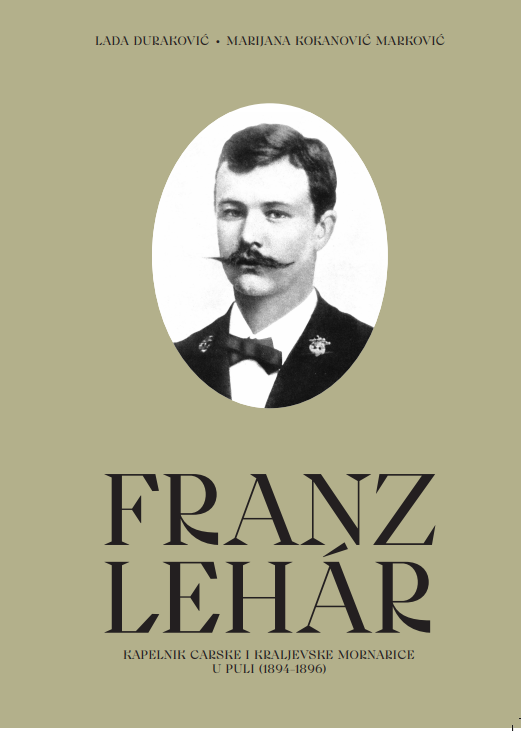
The Lehár book by Lade Duraković and Marijane Kokanović Marković, 2020.
This book is the author’s contribution to marking the 150th anniversary of the birth of the bandmaster and composer Franz Lehár (1870-1948), and it is dedicated to his lesser-known life chapter in Pula.
While today he is primarily known as the author of successful operettas, Lehár began his career as a military musician. He attended school in Budapest and Sternberg and enrolled in the Prague Conservatory when he was twelve years old. He studied the violin in Antonín Bennewitz’s class and theory with Joseph Förster.
He received support and encouragement from Antonín Dvořák in working as a composer. In autumn 1888, he found employment as a theatre violinist in Barmen-Elberfeld (now Wuppertal), and a year later he joined the military band of the 50th Infantry Regiment (Infanterie Regimente No. 50) in Vienna, led by his father. In 1890 he gained a position as a bandmaster in Lučenec (IR 25, 1890−1894), which began his twelve-year career as a bandmaster, during which he changed his place of residence three times.

A view of Pula today. (Photo: Nick Kane / Unsplash)
After Lučenec, he was stationed in Pula, which was then the central Austro-Hungarian military port on the Adriatic. He resided there for two years (1894–1896), as an orchestra conductor for the Imperial and Royal War Navy. Following that, he led the orchestra of the Infantry Regiment in Trieste (IR 87, December 1896–1898), Budapest (IR 3, 1898–1899) and Vienna (IR 26, 1899–1902).
His position as a military bandmaster largely determined the choice of genre and the style of his works of that period, alongside his clearly expressed ambition to compose more ambitious and complex masterpieces that would enable him to leave military-bandmaster service and affirm his presence on the European opera scene.
In the introductory chapter, after presenting the book’s theme, a critical review of previous musicological research in the Croatian and foreign literature is given, as well as an overview of the sources used.
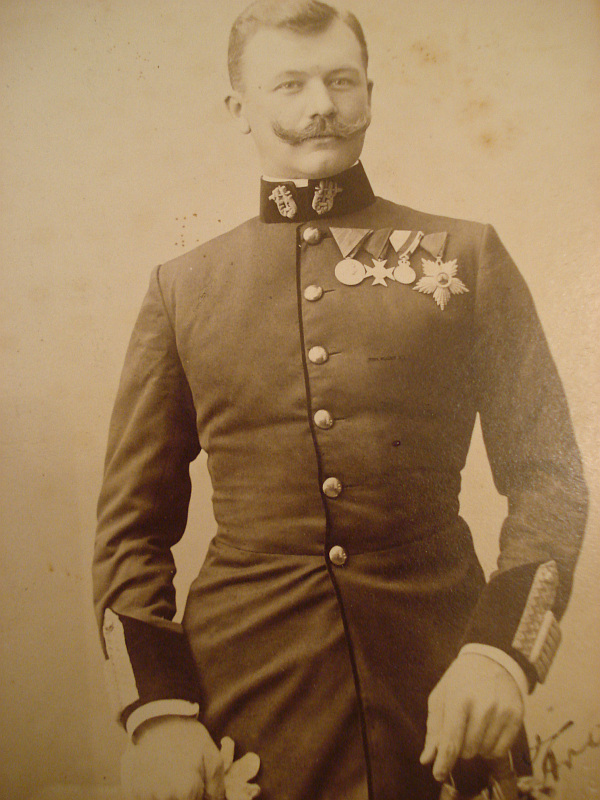
The young Franz Lehár, at the start of his career.
As Lehár’s activities as a bandmaster with the Imperial and Royal War Navy in Pula have been little researched, the book’s authors have principally focused on archive materials: articles in the daily press in Italian and German, as well as manuscripts and published compositions from this period of artistic creation.
The aim was to review his total contribution to the cultural life of Pula in this period, through analytical insights into his military-bandmaster and composing activities.
The reconstruction of the Navy orchestra’s repertoire when led by Lehár was especially challenging, as practically no programmes were preserved. By taking excerpt material from the local press, principally from the paper L’Eco di Pola, a list of performed compositions was made, which was later systematized and analysed in relation to the genre it belonged to. Difficulties in establishing the precise names of the compositions presented a particular challenge, as in the press they are stated in (i.e. translated into) Italian, often with incomplete or more creatively translated titles.
It was also of great significance to establish how Pula and its inhabitants left an influence on Lehár’s opus of compositions from that time, as well as determining the precise list of works he composed in Pula, given that contradictory information on this topic can be found in the literature.
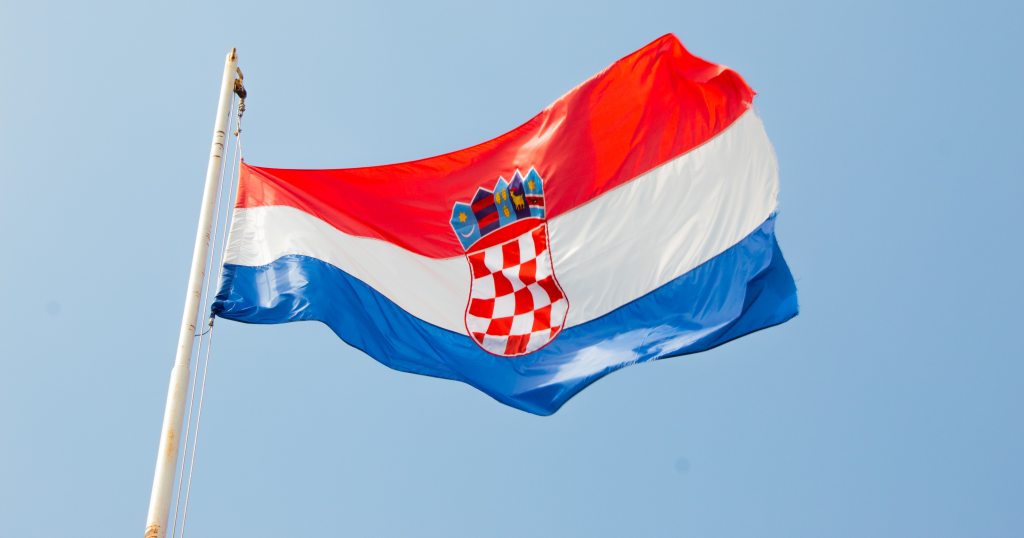
A Croatian flag in the wind at Pula. (Photo: Niels Bosman / Unsplash)
In the second chapter, entitled “Franz Lehár in Pula”, the musician’s activities in the context of the socio-cultural milieu of the 1890s were illuminated. In the middle of the 19th century, the Viennese Court declared Pula the principal naval port of the Austro-Hungarian Monarchy. As a result, the resident Naval Orchestra, which Lehár conducted as bandmaster of the Imperial and War Navy Orchestra, was large in size, comprised of more than 110 musicians.
The orchestra’s work was dynamic – it regularly performed in the Navy Casino, as well as at balls and afternoon and evening concerts, which served to entertain. His group, the Wind City Chapel (Stadtkapelle), performed outdoor concerts almost every Sunday. This chapter pays attention to Lehár’s friendships forged in Pula, principally with the marine lieutenant Felix Falzari, who wrote him a libretto for the opera Kukuška and for whose verses he composed a cycle of solo songs Weidmannsliebe op. 26.
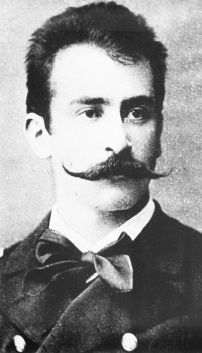
Lieutenant Felix Falzari, who wrote the libretto for “Kukuška.”
Apart from the friendship with Falzari, Lehár’s acquaintance with the Pula opera composer Antonio Smareglia also had a big influence on his composing. Smareglia was a great fan of Richard Wagner and acquainted him with the operas Tristan und Isolde and the tetralogy The Ring of the Nibelung.
The following chapter “The Naval Orchestra’s Concerts under Lehár’s Leadership– Repertoire Features” is dedicated to reviewing the role of the Naval Orchestra in the cultural life of Pula during Lehár’s leadership. The works are listed and systematized by genre (marches, dances, fantasies and potpourris, pieces with programme-related titles, parts of operas and spiritual compositions).
The significance of the Naval Orchestra in this period for the musical and cultural life of Pula was reflected in the distribution and popularization of a wide repertoire of compositions, and in the musical education of wide swathes of the population.
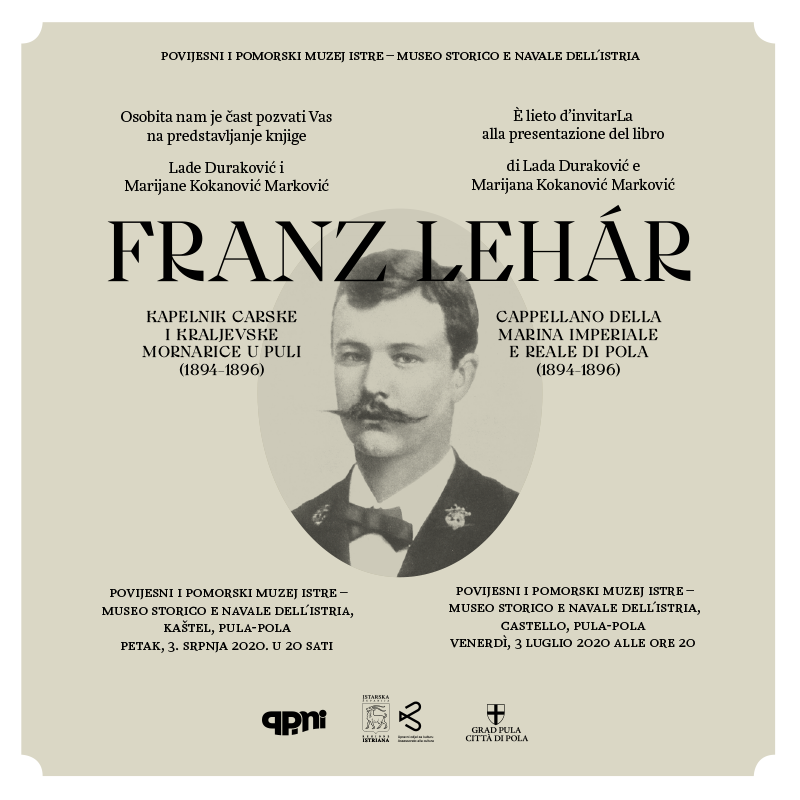
Announcement of the book presentation in Pula in July 2020.
This was particularly so as the Naval Orchestra’s performances were the first opportunity many residents of Pula had to acquaint themselves with a serious musical repertoire.
The chapter “Lehár’s Compositions in Pula” is devoted to the works that emerged in this period of the artist’s creative activities. Lehár’s output as a composer in Pula, alongside works from unique compositions by military musicians (marches, dances), Sonatine all’antica op. 27, also includes the series of solo songs Weidmannsliebe op. 26, the symphonic poem Il Guado, and the opera Kukuška.
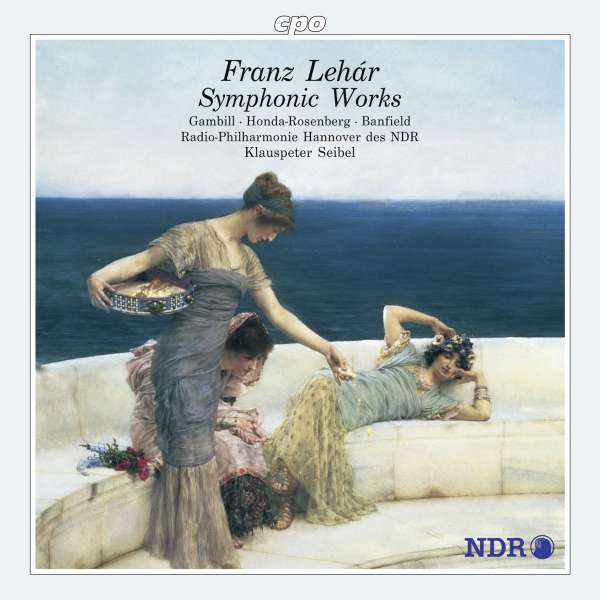
The Symphomic Poem “Il Guado” by Lehár is included on this cpo album.
As early as in the genre-related considerations of Lehár’s creative works in Pula, there is an obvious division between works of an “easy” genre, which could be categorized under the label of so-called “Unterhaltungsmusik”, and more complex authorial endeavours, such as the mentioned series of solo songs, symphonic poems and operas, which point to the young musician’s desire for – by taking a step towards more ambitious undertakings – affirmation as a composer and freedom from the weight of his military service.
The strength of this drive is best evidenced by Lehár’s letter written to his parents, in which he clearly equates service as a military bandmaster with slavery, hoping for a breakthrough on the theatrical scene and putting all of his hopes into his opera Kukuška.
It was precisely Lehár’s opera debut that symbolized his youth ambitions and desire to devote himself exclusively to composing, and so in this and the following chapter, special attention is paid to it in relation to his other accomplishments.
In the fifth chapter “From Pula to the World: The Reception of the Opera Cuckoo (Tatjana) and the First Operettas”, Lehár’s work after leaving Pula is discussed, and his striving for the opera Kukuška to be on stage and held across theatre scenes, to help accomplish his ambitions as a composer.
Kukuška premiered in the City Theatre (Stadttheater) in Leipzig on 27 November 1896, and was later followed by performances in Budapest, Brno and Vienna. After a lack of success and difficult experiences with that opera, Lehár decided to turn to operettas. The first libretto for the operetta Arabella, der Kubanerin (1901) was written by Gustav Schmidt, who succeeded him in the position as bandmaster of the Naval Orchestra of Pula.
The work was not finished, but Lehár later made use of two numbers from this operetta, which he used in his first performed operetta Wiener Frauen (1902).

Lehár (r.) together with colleague Heinrich Reinhardt, composer of the 1901 hit “Das Süße Mädel.” (Photo from “Dein ist mein ganzes Herz” / Böhlau Verlag)
Only at thirty-two was Lehár able to abandon his military-bandmaster service and live off composing and conducting. In so doing, his twelve-year career as a military musician came to an end and a new chapter opened in which, as an operetta composer, he would enjoy world fame.
Anybody who wishes to order the book can contact the History and Maritime Museum of Istria at ppmi@ppmi.hr.
A “Lehár in Pula” exibition at the museum has been postponed because of Covid-19, it was a co-operation with the Lehár Museum in Bad Ischl. It might be realized in 2021 said curator Katarina Maric to the Operetta Research Center.

fab article, very informative and compact, danke gh
Great article, thank you. where can the book be purchased?
Please let me know if possible.